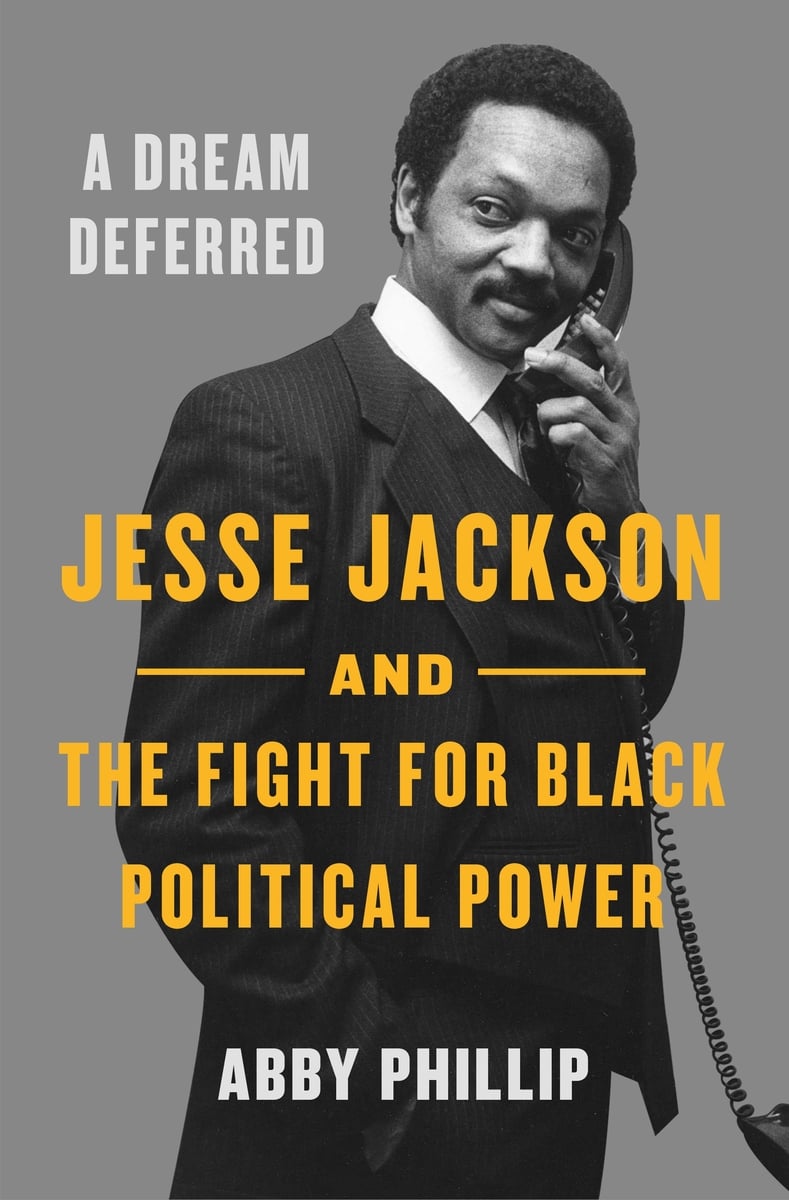Abby Phillip Wasn’t Looking for the Spotlight. She Earned It Anyway.
After writing her first book on Jesse Jackson’s legacy, the CNN anchor reflects on risk, resilience, and staying true to herself.
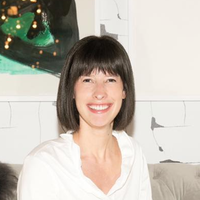
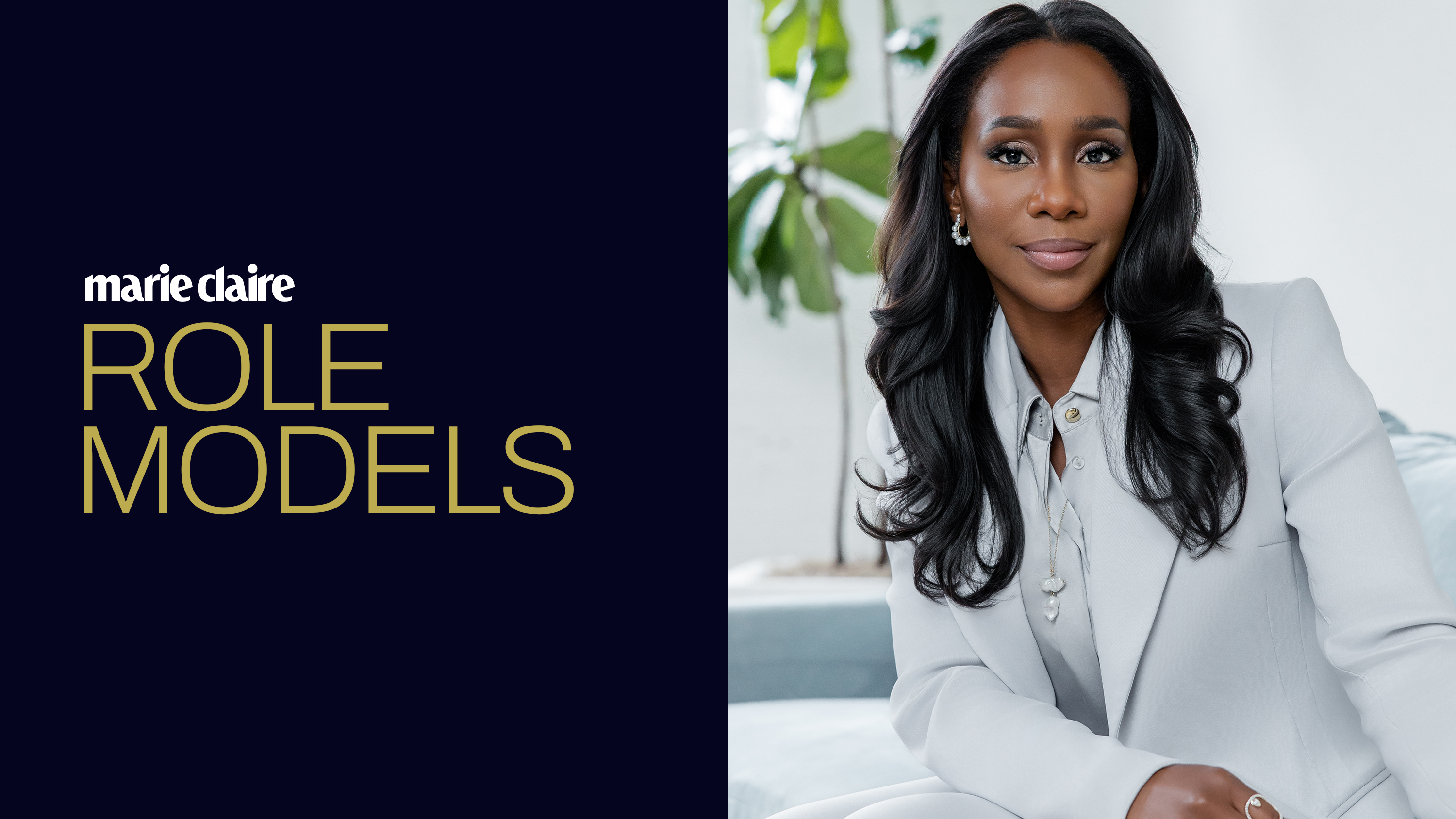
In Marie Claire’s monthly series Role Models, we ask women we admire to share the details of their careers, from the pivots and setbacks to the life lessons that shaped their path. To kick off the column, we’re talking to Abby Phillip, the veteran CNN anchor known for her steady presence and sharp political insight. From politics reporter to primetime host, she’s made a career out of following her gut. Her new book, A Dream Deferred: Jesse Jackson and the Fight for Black Political Power, which revisits the civil rights leader's groundbreaking presidential campaigns, channels that same instinct: looking for the bigger story in moments people tend to overlook. Here, Phillip reflects on building her career from the ground up, learning when to bet on herself, and finding balance while writing her first book and raising her young daughter.
On what being a role model means:
I think a role model is someone who makes you feel like who you want to be. I think it’s aspirational, but it’s also kind of self-affirming. For me, when I look up to other people, it’s because I see something of myself in them and I also see what I can be. Sometimes role models are people who have achieved things I’ll never achieve, but they’re encouragement to keep going.
On my role models:
I sometimes have a hard time saying, this person is the model for who I want to be. People ask me that all the time. And a lot of times it’s because the circumstances I’m in as a journalist are so fundamentally different from what other people I really admire have had to experience. I think you have to come to terms with the uniqueness of your experiences and pull strands from the people who had different experiences but have fundamental lessons for you in how to persevere. But at the end of the day, there is no person that exists whose career I want to clone. There is no clone for your life. You have to make your own path. I realized that pretty early on and I think that has been an important lesson to me.
There is no clone for your life. You have to make your own path.
On the journey to my current role:
It’s been unconventional, I would say. When I started out as a journalist, I was a print reporter with zero aspirations to be on television. It’s hard to believe at times that I’ve ended up here. In a way, that’s the beautiful part of the journey—because it’s been so unexpected and it’s been organic. There’s been this great balance between always understanding what I needed and wanted more from my career, and being open and flexible enough to try new things and take risks.
Get exclusive access to fashion and beauty trends, hot-off-the-press celebrity news, and more.
When I started out, I was working at Politico. I was such a big political nerd—this was my dream job. I was covering the White House; what else could I want? Eventually, it became clear that I needed to grow more, so I left. I took a big chance and I went to New York and worked at ABC News, a television company that I knew nothing about. It was really difficult.
There were so many times during the journey when I asked myself, is this really what you should be doing? Should you just go to law school and get a degree and get a real job? Or is this a moment that I need to keep going? Time and time again, I decided to keep going. I decided to not give up.
I also think that the setbacks I had—and I certainly had setbacks where I felt like I wasn’t fulfilling the job and I wasn’t doing great, and I was told essentially that I wasn’t doing great—those setbacks really taught me to dig deeper into myself and figure out what I was good at and to keep trying and maybe go somewhere else where I could learn new skills. I just kept deciding to keep at it.
I left ABC, I went to The Washington Post, and I also thought I was in my dream job there working at my hometown newspaper. I loved it there. I had dreams of being a war correspondent. When CNN came knocking, I was like, don’t think so. I don’t really want to be on TV. I don’t need to do this whole hair and makeup thing. But it was a risk that I took to try a different platform that I realized had a different impact on people. I look at it as an open door that I chose to walk through despite the risks to my career, despite the chance I could suck at it. I’m glad that I did. And so at all of these different junctures, I just said, it’s probably a good sign that you’re scared to do this, so just do it.
When I was in all of those jobs, I didn’t know what was coming down the road. I didn’t know how the world was changing or how the news business was changing, and that was scary at times. But I think there’s so much opportunity in that.
A career highlight:
Well, honestly, when I flew on Air Force One for the first time as a journalist. I was like 22 years old. As somebody who did not think I could make a career out of journalism, I was walking onto that plane as a White House Correspondent. And it was crazy. It was so surreal. I was so scared to even take pictures because I didn’t want to be that person. I was definitely by far the youngest person on that airplane. So I’m surrounded by all of these veteran White House correspondents. It was a moment. It was a moment for me, for my parents, for my family. I wish that I had taken it in more. I was trying to be that person who wasn’t impressed, but it is impressive and so cool to be on that plane and to have that card that has your name on it. Even after all of these years and all these things I have done, that was the most amazing time.
Who I still want to interview:
There are a lot of different categories of people, but none of them are politicians. They’re all artists. I would love to sit down with Oprah. I would love to sit down with Beyoncé. I would love to sit down with, like, a Viola Davis and people who have these interesting, more unconventional careers. There are people in the business world I would love to sit down with. I love the stories of people’s journeys, from how they got from point A to point B. Those are the kinds of people I find really interesting and would want to have conversations with.
I love the stories of people’s journeys, from how they got from point A to point B. Those are the kinds of people I find really interesting and want to have conversations with.
How my job has changed:
When I first started as a reporter, it was kind of at the beginning of this cadence of the news. It was when Twitter was becoming a big part of how we did our jobs. I was working at Politico—that really crystallized the 24/7 news cycle, the constant blogging, the minute-by-minute documenting of the news. That has escalated to a degree that I didn’t even think was possible.
I also think that things have gotten way less serious. The substance that used to characterize the news has declined dramatically. We are in a place where there is so little substance, there is so little real stuff being talked about, even while the issues deeply affect the lives of real people. That is scary and sad because I think the way we conduct politics has become much less substantive, and yet people are much more impacted by the day-to-day decisions that are happening in Washington. That’s an unmistakable shift.
Literally: government accounts are conversing in memes and insults. It’s just gotten dumbed down. I don’t think that’s beneficial to anyone. There are so many important issues that we used to be able to talk about in real substantive ways, and it’s getting harder and harder to do that. In part because our political leaders are not willing to and, in some cases, they don’t know the subject matter all that well themselves. As journalists we used to need to know a lot of policy, and nowadays you don’t. And that’s not a good thing.
I’ve had boundaries in this business for a long time, almost to my detriment.
How I maintain my mental health while working in news:
Especially recently, it’s been super important to take care of yourself in all the different ways. I’ve had boundaries in this business for a long time, almost to my detriment. There were times when I thought that I really wasn’t committed enough to my work, or to covering politics, because I would not feel compelled to be on social media tweeting about politics on the weekend. Thank God that wasn’t true. But it’s tempting to feel that if you’re not plugged in all the time, you can’t hack it.
From a pretty early point I knew I needed to create those boundaries for myself. On the weekends, I don’t really engage. I work a lot but I try to create time for myself. My social circle is completely outside of the news and politics and journalism. I have a life outside of this where I’m around people with different interests, so I’m not constantly engaged in it.
Recently, even more, I’ve been trying to do a lot more active mindfulness like meditation and acupuncture. I’m 36; your body is shifting alongside your mind and your mental state. I have a daughter, and I have a lot of demands on my time and energy. Taking care of your mind is also taking care of your body. So that mind-body connection is something I’ve been spending a lot of time on.
I know people want to stay informed and be engaged, but people should be mindful that not everything that’s out there is true, or worth consuming. You can still be informed without taking wholesale the constant rage bait that is out there on the internet. That does degrade your mind, your soul, and your spirit. You should create boundaries around that, because what you take in can stay with you.
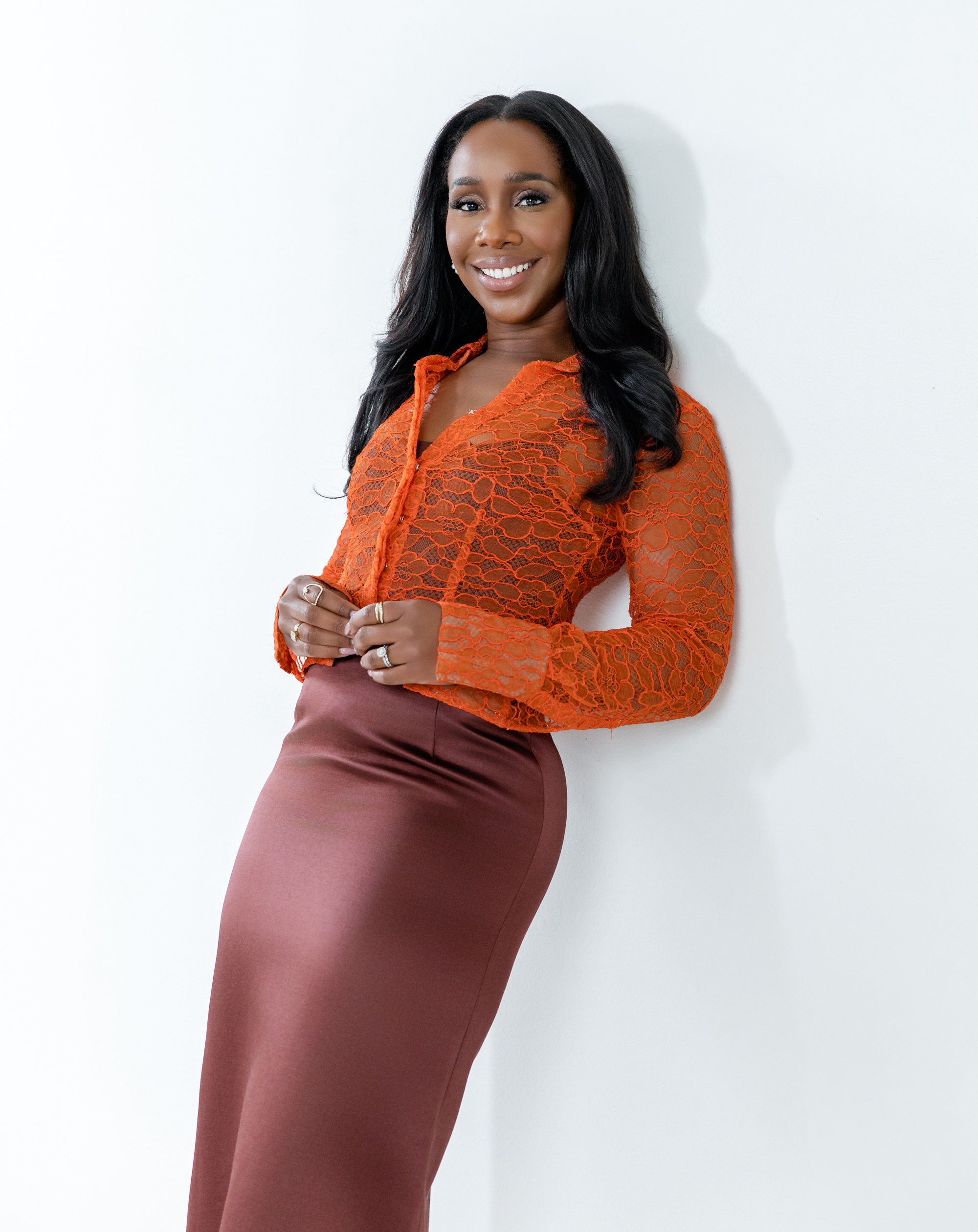
What I learned by writing a book:
In a way I feel like I learned everything writing this book. I didn’t start out as an expert in this era of American politics. I was born about three weeks after the 1988 campaign ended, so I wasn’t even here for it. I wrote this book for people like me, who I think needed to understand that it didn’t start here and there was this time, before Obama, when a Black man tried to run for president and got pretty far. And did so on a platform that’s so unique, that there are politicians today who are attempting a similar type of politics—and knowing where they got it from is super important to try and understand. People like Bernie Sanders, like AOC, and others, are the inheritors of Jesse Jackson politics.
I wrote this book for me. I wrote this book for people who lived through those campaigns. I learned very quickly that so many people who lived through it felt in real time that Jesse Jackson was being underestimated and wasn’t being given his due. I think it was worth it to say: ‘Let’s actually take a look at that, let’s take a look at what really happened and what he ran on and what the impact was.’
In the 1980s, you wouldn’t have known the impact he had. But 40 years later it’s very clear what that impact is. Obama wouldn’t have been the Democratic nominee had he not changed the rules. People like Bernie Sanders and AOC—the bedrock of their politics is the politics of Jesse Jackson, popularized on a national scale.
Democrats wouldn’t be talking about universal healthcare, a two-state solution, even though it’s controversial. There are so many things that he put on the agenda that just weren’t on the agenda, like women being equal players in politics. He was the very first Democratic candidate to say a woman should be on the ticket. It’s a massively undertold story in our history that I think people will find super interesting.
How I wrote the book while working full-time:
It wasn’t easy. I always joke that I am the wife. I am both the working person and the writer, but I’m also the mom and the wife. And if you know, you know what that’s like.
I had to be kind to myself because there were so many times during this journey that I was like, why can’t I do this? Why can’t I breastfeed my newborn baby and also find time to focus on a book? I wasn’t even prepared for that.
When I started writing this book, it was a month before I found out I was pregnant with my daughter. The pregnancy journey, the nausea. I also launched my first show at that same time. There were so many things that were unexpected that I just had to get to a point where I was kind to myself. ‘It’s okay that this is something that you can’t do all at once.’ It took longer than I would have liked for it to take. But I’m very proud of myself that I persevered through those moments.
Ultimately, sometimes that’s what it takes, even when it doesn’t come easy, when it’s not fast and quick and there’s not this instant gratification—and you still do it. The book is the opposite of instant gratification. When you’re writing your first book, when you don’t know what the process is like, when going through it it can feel like it’s never ending. I had to stay up late many, many nights after working very full days. Especially when I was anchoring Inside Politics Sunday—that was like a six-day-a-week job. I was doing a Sunday show and also working all the other days. So I was working more than I had ever worked in my life, and trying to write this book on top of it. There were weekends, holiday weekends, I would have to say: ‘I’m going away for the weekend, locking myself in a hotel room, and writing for three days straight—for 14 to 15 hours a day.’
And that’s how I wrote this book. It was a grind. Sometimes that’s what we have to do. We just have to be patient with ourselves but also do what needs to be done.
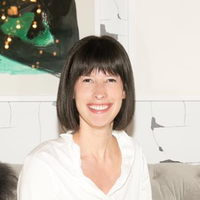
A former features director at Cosmopolitan, and the current executive editor of Marie Claire, Andrea reports on politics, people, culture, social trends, physical and mental health, and more.
